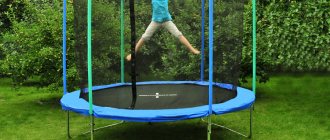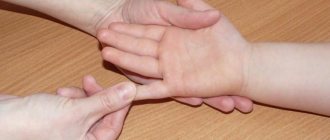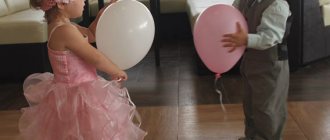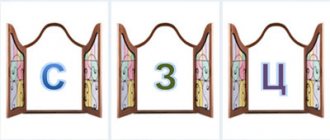Typical speech disorders in children 5-6 years old
Most older preschoolers have difficulties with:
- mastering sonorous and hissing sounds;
- sound analysis of words;
- development of narrative speech;
- writing a story and descriptions.
Of course, such problems can be minor, only slightly different from the age norm, or serious, up to and including general speech underdevelopment (GSD). It is necessary to contact a speech therapist in any case, but the supportive work of parents at home is also very important.
It is worth noting that regular speech therapy exercises and classes for children 5-6 years old are useful for every child at home, because they help to master literacy faster.
Lexical dictionary for speech development in the middle group
Tatyana Vladimirovna Gorbatovskaya
Lexical dictionary for speech development in the middle group
Dear colleagues, maybe someone will laugh at my material, but someone will need it. After all, it often happens that in conversation with children we develop some kind of clichés, we use the same words and this does not make our speech colorful. Therefore, I bring to your attention this unique dictionary. I use it when making stories based on a picture or when explaining something.
Fruits
Nouns. fruit, apple, pear, plum, cherry, banana, tangerine, orange, lemon, tree, bush, peel, seed, seeds, juice, jam, marmalade.
Adjectives Green, red, orange, yellow, purple, big-small, large-small, sweet, juicy, crispy, ripe, tasty, hard-soft, heavy, rough, smooth. Bulk, rosy (apple, lemon, cherry, raspberry (juice, apricot, apple, peach (jam).
Verb. Grow, bloom, sing, bear fruit, collect, pick, wash, store, cook, prepare, grow, ripen, ripen, sell.
Berry
Nouns. Strawberries, currants, gooseberries, raspberries, lingonberries, wild strawberries, compote, jam, juice.
Adjectives Tasty, sweet, sour, boiled, dried, fragrant (strawberries, soft.
Verb. Collect, wash, cook, cut, dry.
Vegetables
Nouns. Carrots, radishes, cabbage, beets, tomato, onion, peas, cucumber, dill, zucchini, parsley, pumpkin, pepper, eggplant, garlic, lettuce, harvest, seeds, pod.
Adjectives Green, yellow, red, blue, red, juicy, round, oblong, strong, bitter, sweet, small, large, large, small, crispy, smooth, soft, vegetable (lettuce, pot-bellied (pumpkin, pimply, thick-skinned, ripe , rough.
Verb. Grow, water, dig, dig up, dig up, weed, plant, sow, fertilize, grow, ripen, collect, pick, cut, wash, store, salt, cook, fry, replant, harvest.
Animals
Nouns. Wild: fox, wolf, bear, hare, squirrel, fox, hedgehog, deer, cubs, bear cub, hare, wild boar, lynx, beaver, seal, walrus, bristle, mouth. Domestic: cat, dog, cow, goat, horse, pig, sheep, rabbit, lambs, names of cubs. Barn, pigsty, head, ears, horns, body, wool, legs, stubble, hooves, paws, udder, beard, dog, bull, horse, wild boar, ram.
Adjectives Wild, forest, angry, cunning, cowardly, fearful, cautious, clumsy, clubfooted, fast, big, prickly, dexterous, hardworking, small, white, fluffy, hungry, nimble, long-eared, ferocious, timid, angry, furry, clumsy , predatory, nimble.
Fluffy, smooth, horned, fierce, affectionate, vicious, stubborn, dexterous, nimble, fleet-footed, ungulates, caring, hunting, watchdog, faithful, biting.
Verb. Hunt, walk, growl, shoot, sneak, wander, store, dig, build, hibernate, catch, molt, hide, hide, jump, run, jump, collect, fall asleep, rest, prowl, gnaw.
Meow, bark, growl, moo, grunt, feed, guard, guard, frolic, play, milk, look after, take care of, caress, purr, graze, rest, lick, cut.
Professions
Nouns. Builder, driver, pilot, firefighter, teacher, artist, cook, doctor, hairdresser.
Verb. Lift, put, manage, write, water, treat, cut, comb, play, tell, win, cook, fry, cook, transport.
Rules for speech therapy classes at home
The success of home lessons depends not only on the availability of the necessary aids and a work plan agreed upon with the speech therapist. The organization of classes itself is very important. Here are a few simple rules that will help you achieve excellent results:
- All speech therapy exercises for children should be carried out regularly, but a little at a time. You shouldn’t try to do articulation gymnastics, play speech games, or fill out a workbook right away. It is better to devote a few minutes to each type of exercise, rather than having a whole “speech therapy day.”
- Do not force them to complete tasks under pressure; educational activities for children should resemble a game. Come up with a simple plot (for example, a journey into the universe of sounds), prepare small prizes (stickers, paper stars), and arrange physical exercises.
- Praise and support the little student if he makes even the slightest progress. Focus on achievements, even small ones, gradually progress will become more and more obvious.
- Find good workbooks for home practice. They should not only be professional in content, but also bright, colorful, and exciting. It is ideal if the tasks have interactive elements (the opportunity to add something, draw something). Such material makes it possible to interest a preschooler and clearly shows him the “path traveled” and success.
- Don't expect instant results, be patient and gentle perseverance. The process of setting, consolidating, and differentiating sounds is complex; it takes months even for experienced speech therapists. Follow the plan and the results will gradually appear.
Speech therapy exercises for practicing at home
All speech therapy exercises can be divided into three large blocks, each of which needs to be given attention and carried out regularly:
Development of phonemic hearing
The ability to distinguish sounds by ear seems natural, but if you ask your preschooler to spell a word, you will see gaps.
For children 5-6 years old, there are a large number of special games and exercises that help develop phonemic hearing. These include:
- selection of words starting or ending with a given sound;
- counting sounds in a word, determining the syllable structure;
- drawing up a sound diagram of a word;
- inventing rhymes and short poems;
- pronouncing speeches and tongue twisters.
Thoughtful speech therapy classes for children 5-6 years old make it possible to make all the sounds of their native language obedient and easy.
Finger gymnastics
Fine motor skills of the hands help speech activity, so older preschoolers must do it without fail.
Of course, for children 5-6 years old, the exercises should be complex, with a script, in verse. It is useful to select sets of exercises for both hands at the same time, synchronous. Don't forget to use "helpers":
- small massagers (rubber balls, rollers, cones);
- scissors for cutting;
- plasticine;
- origami paper.
Also remember that all types of needlework, construction, and any creativity are great ways to improve fine motor skills outside of individual lessons.
Articulation gymnastics
Special language exercises must be performed every day if there are any problems with pronunciation. For home exercises, it is best to choose a set of exercises with a poetic description and pictures.
Do a tongue warm-up every day, always in front of a mirror (this allows the baby to observe the process himself, assessing its success). If you have problems with one or two sounds, then articulatory gymnastics should be selected for them. These can be found in thematic workbooks on speech therapy.
Formation of vocabulary in preschool children
Nadezhda Melnikova
Formation of vocabulary in preschool children
| A. Koni: |
| The word is one of man's greatest weapons |
Modern life dictates its own laws. Good speaking is an art that needs to be learned. Both a person’s social status and professional career depend on this. Many years of experience working with children with speech development problems confirms that the earlier a child masters good speech, the fewer problems he has with learning at school, the less often difficulties arise.
The task of adults is to help the baby master speech. But to do this, you need to clearly understand the entire path of a child’s normal normal speech development, know the laws of this process and the conditions on which its successful occurrence depends.
The development of a child’s vocabulary can be divided into several stages:
Stage 1 – pre-verbal. Lasts from the birth of the child until the time of the appearance of the first conscious words - up to approximately 12 months. This is the period of formation of speech understanding. The child turns his head when he is shown well-known objects, toys, performs simple movements (makes “okay”, waves his hand “goodbye”), although he still cannot describe the actions he is performing in words.
Stage 2 (from 1 year) – verbal. This is the stage of active acquisition of vocabulary of the native language. In the process of vocabulary formation, there is not only an increase in the number of words in a child’s speech, but also a clarification of their meanings. At first, the meaning of the word is polysemantic, amorphous and vague. It can have several meanings and denote an object, a sign, and an action. For example, the word “bi-bi” can mean a car, a bicycle, or anything that rides. The word is accompanied by a certain intonation and gestures that clarify its meaning.
Stage 3 (from 2 to 3 years) is the most favorable stage in the development of a child’s speech - mastering the rules and norms of the native language. An important indicator of speech development at this stage is the appearance of phrasal speech by the age of two. In the child’s active speech, various parts of speech appear: verbs, nouns, adjectives, numerals, adverbs. The active development of vocabulary during this period increases the child’s communication abilities. When a child masters a sufficient vocabulary, coherent speech and grammatical structure of speech begin to develop, and the sound side of speech improves.
Stage 4 (from 3 years old) - mastering the morphological system of the Russian language. At this age, there is a significant increase in vocabulary, the child has questions about the meaning of words, and the child himself tries to explain words based on their meanings. By the age of four, correct sound pronunciation, the intonation side of speech, as well as the ability to express a question, request, or exclamation with intonation are formed. By this point, the child has accumulated a certain vocabulary, which contains all parts of speech. During this period, the formation of monologue speech occurs. The child is already able to tell not only directly perceived circumstances, but also what was perceived or said earlier.
By older preschool age, clarification of the semantic meaning of words is gaining momentum. Children develop a great interest in the word and its meaning. The vocabulary of an older preschooler is actively enriched by words invented by the children themselves. Word creation becomes one of the important features of children's speech. Children of senior preschool age master coherent speech, which is a powerful reserve of their mental development.
Taking into account the above, we can say that by the senior preschool age, the child masters all the basic models of his native language, and the vocabulary of a preschooler of this age can be considered as a national language model.
Vocabulary disorders in preschool children
1. The predominance of the volume of the passive vocabulary over the active one;
2. Inaccurate use of words, the presence of verbal paraphasias;
3. Difficulties in updating the dictionary;
4. Lack of formation of semantic fields (semantic substitutions of words);
5. Difficulties in forming word-formation models;
6. Difficulties in forming antonyms and synonyms;
7. Difficulties in identifying essential differential features of words;
8. Limited vocabulary, which complicates the communication process
The main directions of work on the formation of vocabulary in preschoolers
• Expansion of the vocabulary in parallel with the expansion of ideas about the surrounding reality, the formation of cognitive activity (thinking, perception, attention, ideas, memory, etc.);
• Clarification of the meaning of words;
• Formation of the semantic structure of a word, organization of semantic fields, lexical system of the native language;
• Activation of the dictionary, improvement of word search processes, translation of words from a passive to an active dictionary
• Formation of word formation.
• Expanding the stock of synonyms and antonyms
• Formation of the correct use of words in coherent speech.
Speech therapy tasks
Starting with the letter R
One of the most difficult sounds to master is R. Many preschoolers learn to roar loudly by the very end of kindergarten. If the production of the sound P is already behind you, then special exercises will help speed up its automation:
1. “Like a little motor”
We ask the child to pronounce the sound R in the word for a long time, drawlingly (like a motor growls).
2. “Where is R hiding?” (in pictures and words)
Offer to choose pictures with images of objects with a given sound or clap your hands if he hears such a word.
3. “How can you growl?”
Show your child pictures of objects that have the sound r in their names. Offer to read and color the picture.
4. “Sounding tracks”
Together with your child, come up with several chants made up of several syllables:
Ra-ra-ra - they ran away from the yard.
Ro-ro-ro - and they found a bucket.
Ru-ru-ru - we came up with a game.
5. “Substitute a syllable”
The adult offers the child words that end or begin with a syllable with P (ra, ro, ry), the child must choose the correct option and pronounce it correctly.
6. “Look and name”
An adult asks the child to read words with the letter r from the pictures. The word must be said as many times as there are stars next to each picture.
7. “Poems, tongue twisters, riddles”
Learn with your child several poems and riddles in which words with R appear.
The necessary tasks for speech development can be found in the Workbook for the sound R, compiled by Kostyuk A.V.
Download, print the tasks in pictures and study at home:
Speech therapy tasks for the letter P
Starting with the letter L
The hard sound L is also often difficult for children 5-6 years old. If the baby has already learned to pronounce it alone, in isolation, then it’s time to start working on automation in speech. The following exercises are suitable for this:
1. “Say it nicely”
Offer your child several images of words starting with L. Ask him to pronounce the words beautifully, emphasizing the desired sound with his voice.
2. “Toys for Larisa”
Ask your child to collect gifts for the Larisa doll. Tell her that she only likes things that begin with L. For this exercise, you need to select small objects or pictures in advance; all words should not begin only with L.
3. “One-many”
Invite your child to name words with L in the singular and plural. In the workbook for the sound L (author Kostyuk A.V.) there is a whole table with pictures for this exercise (lesson 20).
4. “Find the Sound”
Invite your child to draw up a diagram of the word and mark the place L on it. If it is still difficult for your child to independently determine the number of sounds, then first you can do several similar exercises from the workbook.
5. “Tongue twisters and nursery rhymes”
Use nursery rhymes, tongue twisters and poems with words that contain L.
Download and print tasks in pictures starting with the letter L:
Speech therapy tasks for the letter L









